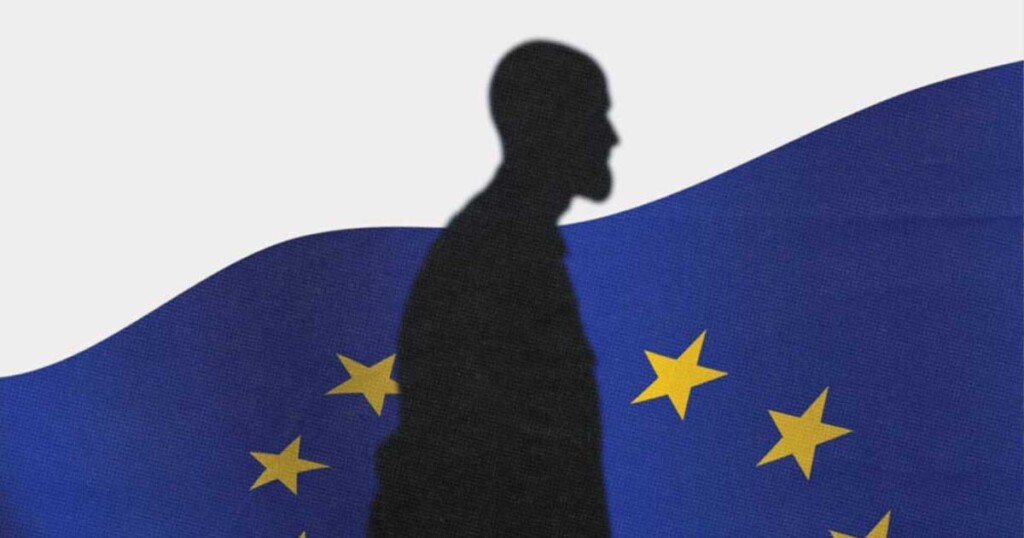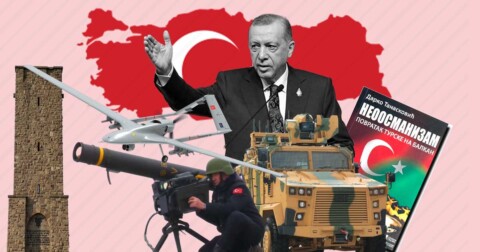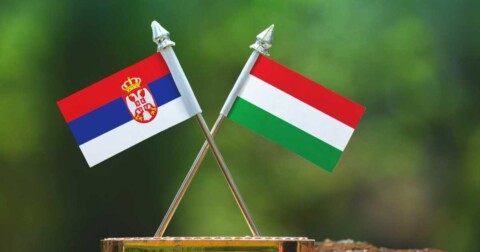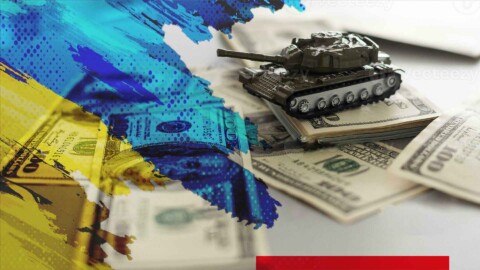In the grand theatre of global politics, Europe has cast itself in a familiar role: that of the moral arbiter. While its leaders declare the brutal conflict in Ukraine to be unequivocally “our war,” and Germany’s once-hesitant arms industry ships advanced weaponry to the eastern front with a newfound and almost jarring confidence, the continent is, paradoxically, sinking ever deeper into a mire of geopolitical irrelevance.
This grand and noble posture, intended to project strength and unity, does more than just undermine the long-term credibility of the European elite; it actively and tragically prolongs the very conflict it tries to resolve. By taking Europe’s bold but ultimately hollow promises of unwavering support at face value, Ukrainian President Volodymyr Zelenskyy’s government is inexorably encouraged to fight to the last man, a strategy that all but cripples any dwindling chance for a diplomatic resolution and risks the sacrifice of an entire generation.
BENEATH MORAL SUPERIORITY – GEOPOLITICAL AMBITIONS
The high-minded, almost sanctimonious rhetoric emanating from Brussels, with its constant, looping invocations of “European values,” can no longer conceal a stark and uncomfortable reality: the world stage is, and perhaps always has been, governed by the cold calculus of raw power, ruthless national interests, and the unforgiving logic of great power competition.
The abstract righteousness of principles, however pure, is a feeble shield against the hard realities of military and economic might. The moral high ground that Europe so proudly claims to occupy has mutated into a double-edged sword. On one side, it projects a shimmering illusion of strength and purpose; on the other, it binds the Old Continent in ideological chains, paralyzing it and rendering it incapable of pragmatic, effective action in a world that does not play by its preferred rules.
This is not the first time Europe has cloaked its geopolitical ambitions in the noble vestments of moral superiority. The colonial-era rallying cry of the “white man’s burden,” which masterfully reframed the violent subjugation of global populations as a benevolent and necessary “civilizing mission,” has left deep and lasting scars on the continent’s psyche and its history. That pervasive sense of innate supremacy, which once fueled the expansion of globe-spanning empires, ultimately and inevitably culminated in the cataclysmic, self-inflicted wounds of the 20th century. The nationalistic hubris and imperial rivalries of that era led directly to the hellscape of two world wars, which left Europe in ruins, shattered its global dominance, and permanently redrew the international balance of power.
OLD COLONIAL RHETORIC REPACKAGED AS “EUROPEAN VALUES”
Today, the spirit of that old colonial rhetoric has been resurrected, repackaged for a new era in the secular language of “rule of law,” “European values,” and “democratic norms.” While ostensibly universal, these concepts are too often weaponized, transformed into sophisticated instruments of political interference, economic coercion, and a subtle but pervasive sense of cultural dominance. The original vision for European integration, as articulated by Jean Monnet, was born from the ashes of these wars. It was meant to be more than a coalition of states; it was a promise to transcend the toxic nationalism that had led to so much bloodshed. Yet today, a new, insidious form of value-based supremacism appears to have captured the European elite. It is a moral imperialism that seeks to present its political decisions not as one of several valid options, but as the sole, unimpeachable truth, dismissing all dissent as a moral failing.

THE POLITICAL CLUB OF THE BRUSSELS MAINSTREAM
This new moralism is just as dangerously detached from the realities of power as its imperial predecessor. Where the colonial powers of old relied on the undeniable might of their armies and navies, the modern EU attempts to wield the more subtle instruments of “soft power.” The problem is that it frequently lacks the requisite economic and diplomatic leverage to exert genuine, lasting influence. The so-called “rule of law mechanism” serves as a perfect case study. In theory, it is a neutral tool designed to protect the integrity of EU funds. In practice, however, it has been transformed into a political cudgel, wielded by the Brussels mainstream to discipline and punish sovereign-minded governments in member states like Hungary and Poland, which dare to diverge from the federalist, progressive orthodoxy. The official accusations may centre on complex issues of judicial independence or media freedom, but the real conflict lies in the deep and growing ideological chasm between two competing visions for Europe: one that is federalist, cosmopolitan, and progressive, and another that remains rooted in the sovereignty of the nation-state and more traditional social values.
ECONOMIC INTERESTS OVER LONG-TERM STRATEGIC FORESIGHT
A central and crippling delusion in the modern European mindset is the complacent belief that its considerable economic strength can be automatically and effortlessly converted into geopolitical clout. The reality is precisely the opposite: the EU’s myriad economic vulnerabilities are systematically crippling its ability to act as a sovereign global power. For decades, the continent’s – and particularly Germany’s – deep dependence on cheap Russian energy was the bedrock of its industrial model. This arrangement, rationalized under the naive policy of Wandel durch Handel (change through trade), stands as a textbook example of how short-term economic interests were allowed to completely eclipse long-term strategic foresight. The brutal but necessary decoupling that followed Russia’s full-scale invasion triggered a massive economic shockwave across the continent, fueling rampant inflation, sparking social unrest, and threatening to deindustrialize the German economy, the very engine of European prosperity.
A disturbingly similar pattern of dependent vulnerability is now unfolding with China. Even as EU leaders deliver sharp critiques of Beijing’s abysmal human rights record, the continent’s economy is critically and increasingly dependent on Chinese supply chains for almost everything that matters. This dependency runs the gamut from the rare earth metals essential for the green transition’s batteries and wind turbines, to the active ingredients in life-saving pharmaceuticals, to the vast consumer market that German car manufacturers cannot afford to lose. This profound dependency severely neuters Europe’s political leverage, reducing its supposedly firm stance on China to little more than performative rhetoric. The EU remains utterly incapable of forging a coherent, unified China strategy because the powerful, national-level economic interests of its most influential member states, particularly export-heavy Germany, consistently override any impulse towards collective resolve. Even the euro, a successful currency in its own right, has failed to evolve into a geopolitical tool on par with the US dollar, hamstrung by the EU’s lack of a common fiscal policy and the deep structural divisions between its northern and southern economies.
DRAGGING KYIV INTO A STRATEGIC TRAP
Nowhere is this chasm between rhetoric and reality more stark or more dangerous than in Europe’s response to the war in Ukraine. The initial unity – the swift condemnation of Russian aggression and the adoption of sanctions – created a powerful veneer of moral clarity and collective purpose. But beneath the surface of slogans about defending Europe, the ruthless great power game between Washington, Beijing, and Moscow continues unabated. In this game, the European Union’s role, though significant in humanitarian and financial terms, remains secondary in shaping the ultimate outcome of the conflict.
The core problem, however, runs deeper than a simple lack of military muscle. Through their soaring rhetoric, European leaders have deliberately created the illusion that the EU can and will guarantee Ukraine’s ultimate victory and its future security. This narrative is not only a dangerous overestimation of Europe’s capabilities, but it actively obstructs the path to peace. It lures the Ukrainian leadership into a strategic trap, encouraging an all-or-nothing mentality that makes the necessary, painful compromises required for a diplomatic settlement seem like a betrayal. Ukraine, caught in the snare of heartfelt moral support and wildly exaggerated promises, is being led down a path that risks not only a bitter and profound disillusionment but the very destruction of its society. All the while, Europe locks itself into a rigid, uncompromising ideological position that it cannot realistically sustain, ignoring the finite limits of its own economic and social endurance.
A POLITICAL CLASS IN A PARALLEL REALITY
This politics of moral superiority is inflicting severe damage not just in the realm of foreign policy, but deep within the social fabric of the Union itself. The chaotic handling of the 2015 migration crisis is a prime example. After the initial, emotionally charged moral fervor of Germany’s Wilkommenskultur (“welcome culture”), the policy descended into abject failure, largely due to a steadfast refusal to engage with pragmatic realities. Instead of honestly and openly confronting the immense challenges of social integration, cultural differences, and the immense strain on public services and social welfare systems, Europe’s political and media establishment chose to morally condemn and socially ostracize anyone who dared to voice legitimate concerns.
This deliberate closing of debate created a vast political vacuum, which was eagerly and effectively filled by the very political forces that the mainstream had hastily branded as “far-right” or “populist.” The rise of these movements – from the vote for Brexit in the UK to the surging popularity of Germany’s Alternative für Deutschland (AfD), France’s National Rally, the Dutch Party for Freedom, and the Sweden Democrats – is not a random anomaly. It is a direct and predictable symptom of a deep and widespread societal dissatisfaction and a profound alienation from a political elite that the public increasingly sees as insulated and unaccountable. These parties built their platforms by giving voice to the very issues the mainstream had declared taboo: the perceived erosion of national identity in a hyper-globalized world, the gnawing economic insecurity of those left behind in deindustrialized regions, and the pervasive sense that the ruling class lives in a parallel reality, utterly detached from the everyday concerns of ordinary citizens.
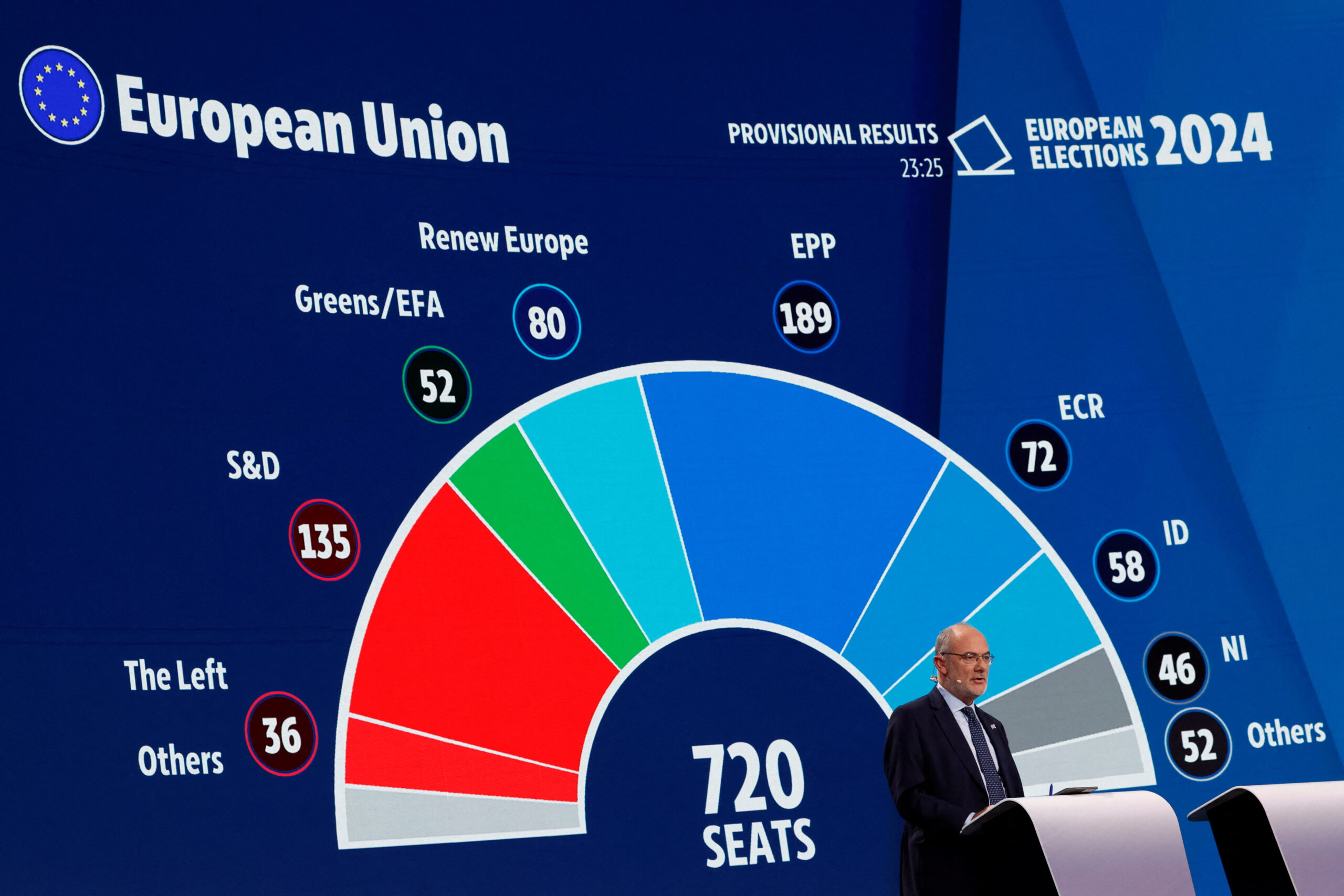
THE RISE OF THE “REBELS” AND THE COLLAPSE OF THE LEFT
The establishment’s primary strategy: to morally label, condemn, and exclude these groups has proven to be spectacularly counterproductive. By refusing to engage in substantive debate on the issues raised and resorting instead to moral lectures and condescension, they have only succeeded in fueling the underlying discontent and powerfully reinforcing the anti-establishment credentials of these insurgent parties. This entire phenomenon also reflects a historic and catastrophic failure of the traditional European left. For decades, social democratic parties have been steadily abandoning their historic working-class base and its focus on economic security, reorienting themselves to champion the identity-based cultural concerns of a highly educated, urban, progressive elite. In doing so, they left millions of their former voters feeling politically homeless, unrepresented, and unheard.
In this suffocating atmosphere of moral certainty, freedom of speech, what is arguably the most fundamental achievement of Western civilization, inevitably withers. It is replaced by the chilling effects of moral censorship and pervasive self-censorship, as people become afraid to voice opinions that deviate from the accepted orthodoxy. When morality is degraded into a political cudgel, used to bludgeon complex, multifaceted problems into a simplistic and childish binary of good versus evil, morality itself is the ultimate victim. It becomes hollowed out, losing its gravitas, its nuance, and its credibility.
IF EUROPE DOES NOT ABANDON ITS ILLUSIONS…
The challenge for Europe is not to abandon morality, but to rediscover realism. It must understand that noble principles can only be successfully asserted from a foundation of genuine strength and a clear-eyed assessment of the world as it is, not as we wish it to be. The primary task of Europe’s leaders is not to lecture the world from a fictional moral pulpit, but to make Europe strong again: economically competitive, militarily capable, and strategically independent. If this requires a fundamental rethinking of the entire European Union project, then so be it.
True strength is not found in a self-assigned, self-congratulatory moral superiority. It is forged in the crucible of decisive action, rooted in an acceptance of internal diversity and ideological disagreement, and demonstrated through the difficult but necessary ability to adapt to the world’s unforgiving realities. If Europe fails to abandon its delusions and confront its own weaknesses, it will be permanently relegated to the sidelines of history, a wealthy but feeble museum continent, left to watch as its destiny is shaped by stronger, more pragmatic, and more ruthless global powers. Sooner or later, reality will kick in the door.
